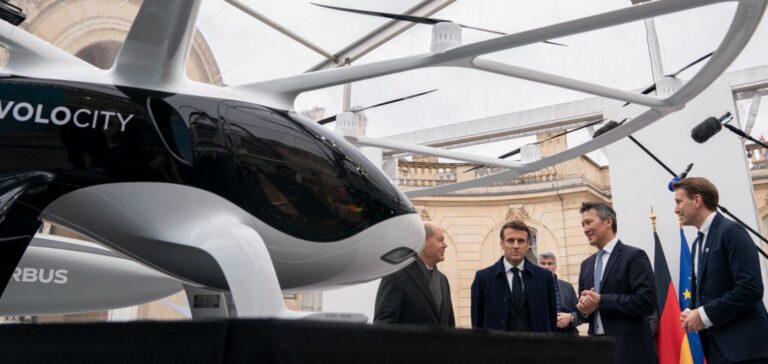Innovation in the air mobility sector is accelerating with the announcement of a partnership between Volocopter, a leader in the design of electric aerial vehicles, and a French company specialized in urban transportation technology. This partnership, which aims to launch electric flying taxis in Paris, marks a significant step in the development of sustainable and connected transport solutions. The project, supported by private investments, is based on Paris’s ambition to become an innovation hub for urban transportation. Volocopter, with its VoloCity model, positions itself as a key player in this sector transformation.
The deployment of electric flying taxis in Paris is expected to take place in the coming years, subject to approval from regulatory authorities. While the approval of aviation authorities is crucial for the launch of these services, the project has already attracted the attention of numerous investors interested in the rapid growth of air mobility. This partnership represents a diversification opportunity for companies engaged in the future of mobility, particularly in terms of integrating new technologies into urban infrastructure.
a project with multiple stakes for paris
Paris, a city globally recognized for its economic attractiveness and dynamism, is an ideal testing ground for innovative transportation solutions. The flying taxi project aims to address several challenges related to urban congestion and pollution. According to initial projections, flying taxis could significantly reduce travel times in the most congested areas of the capital. This development fits within a global trend where cities are looking to integrate advanced technological solutions into their public transport networks.
However, the introduction of these new vehicles raises questions related to regulation, particularly concerning safety and airspace management. Certification of these vehicles by the relevant authorities represents a major challenge before their deployment. The companies involved are working closely with regulators to ensure that the flying taxis meet the strict safety standards set by civil aviation.
political and economic reactions
The Volocopter and French company project has generated mixed reactions within the political class. On the left, some representatives argue that this type of project could divert attention from more immediate public policies, such as improving traditional public transportation or reducing inequalities in access to mobility. Others, however, highlight the economic potential of this innovative sector, calling for flexible regulation that would promote the development of new technologies while safeguarding citizens’ interests.
The private sector, for its part, is generally supportive of these technological advances, emphasizing job creation and the expected economic benefits. Investors see in this project an opportunity for the aerospace industry, with a rapidly growing potential market. However, questions remain about the profitability of flying taxis within the context of urban mobility accessible to all.
an uncertain but promising future
Although the future of flying taxis in Paris remains uncertain, it is undeniable that the partnership between Volocopter and the French company opens the door to innovative possibilities in urban mobility. The early stages of this project, which include pilot tests and public demonstrations, will be crucial in assessing the viability of this solution on a large scale. The future development will depend on the evolution of technologies and the response of regulators, but also on the companies’ ability to convince consumers of the merits of this new form of transport.






















